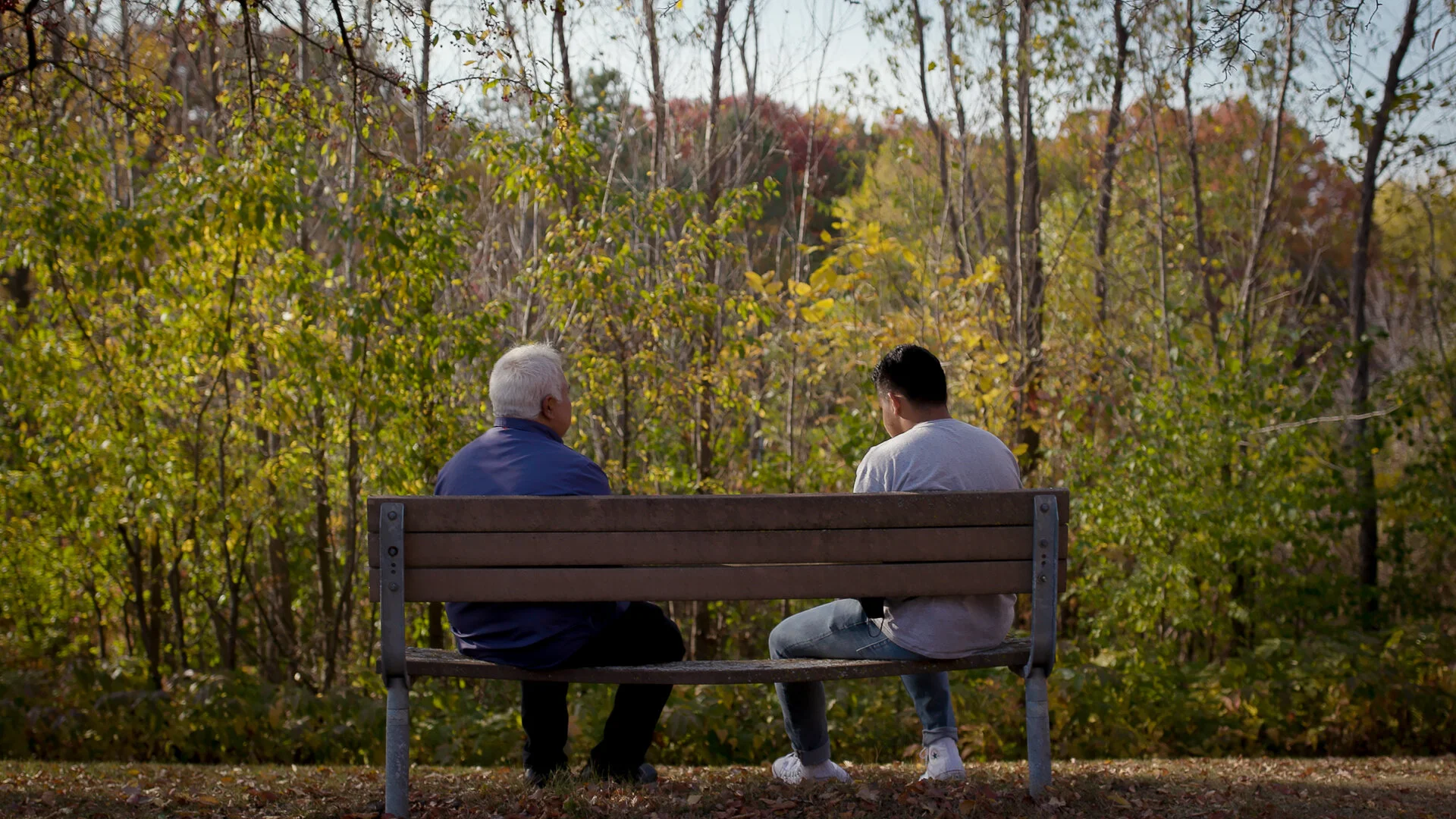Full Frame 2021: Day 1
Directed by Jeff Daniels — no, not that one — Television Event offers an in-depth and riveting “how they made it” look at the 1983 ABC movie of the week, The Day After. Expertly weaving together a wealth of talking heads, ranging from the then president of ABC Pictures to the writers, producers, and director of the nuclear disaster film, the documentary provides a fascinating look at the filmmakers’ struggles to create The Day After and, once it was finished, actually getting it on the air. Enhancing the telling is a reminder of the Cold War film’s inspiration: the growing arms race paranoia between the Reagan administration and Russia, which loomed in the minds of the filmmakers and every American who tuned in. In his incredibly captivating exploration of the lasting effect The Day After had on the people involved — including the entire town of Lawrence, Kansas, where the film is set — Daniels smartly links the past to the present while keeping the bright side of humanity at the forefront. Grade: A-minus —Joel Winstead
Teenage mother Benazir is not the main character in Three Songs for Benazir, a documentary short set chiefly in an Afghan refugee camp. Rather, she is the motivation for Shaista, her young husband (who likes to sing to her), to seek a better life, away from the opium poppy fields where his friends work. Directors Elizabeth and Gulistan Mirzaei had intimate access to Shaista's home and family, and they paint many lovely portraits of mundane moments. They also follow the young man as he pursues what he hopes will be a career and an education, only to find that his chief obstacle is his own family. A sobering coda, filmed four years later, reveals how those hindrances redirected Shaista's life. Grade: B —Bruce Steele
Swiss-Turkish filmmaker Aylin Gökmen makes quite the impact with her latest documentary short, Spirits and Rocks: an Azorean Myth, especially on a visual level. The imagery is so strong that, should she ever decide to expand the material into a feature film, she’s given herself more than enough to build from. While the first half of the doc is composed merely of landscape shots (accompanied by gorgeous sound work), it all perfectly establishes themes of beauty and danger that Gökmen is trying to express in this look at the inhabitants of volcanic island who are simultaneously in awe and filled with terror of the impending eruptions. With archival footage of previous devastations and fantastic B&W cinematography from Marianna Vas, all the stars pretty much align to make a visually stunning, powerful — albeit far too short — work. Grade: B-plus —Josh McCormack
Described as a documentary, dance film (?), and “reimagining of the Cold War-era social guidance film,” Drills bites off more than it can chew in its 16-minute runtime. Intriguing shot compositions in closed spaces and the use of children in classrooms huddled together do create some sense of real-world tension that modern kids are experiencing in schools today, but the film quickly loses interest in them and veers into a far less exciting experiment about drills in general. Featuring a boy scout who breaks the fourth wall, silent corporate offices, and outdoor line drills, the film’s jumbled narrative mixed within its vast scope amounts to little more than an awkward compilation training video itself —making mandatory school drills seem more enjoyable. Grade: D —Cisco Scartozzi
The Last Archer exemplifies what’s great about modern documentary filmmaking. Directed by Dácil Manrique de Lara, the creative profile of her grandfather, Canary Islands painter Alberto Manrique de Lara Díaz, delves into their powerful personal connection through traditional means (interviews, narration, archival tidbits) while mixing in various media, including a few stop-motion animation sequences. In the process, much of Alberto’s artistic process and philosophy are revealed, as well as the ripple effects of his decisions on his talented violinist wife, their many children and grandchildren, and beyond. It’s a lot to squeeze into 70 minutes, but Dácil makes practically every moment count. Grade: A-minus —Edwin Arnaudin
By some estimates, hundreds or thousands of bodies lie undiscovered in the Arizona desert — aspiring immigrants who lost their way after a covert border crossing. The all-volunteer group Águilas del Desierto ("Desert Eagles") spends weekends scouring the brush in search of these souls, to reunite their remains with their families. For their short film Águilas, directors Kristy Guevara-Flanagan and Maite Zubiaurre followed along on one such trek (possibly more than one, cut together), and spoke with the workers about why they do what they do. It's difficult to convey the gravity of their mission, much less the complexity of the underlying border crisis, with the limitations of the film's unremarkable visuals and voiceovers, but it's a decent snapshot of one sad, tiny aspect of the greater tragedy. Grade: B-minus —BS
The U.S. immigration system has become more and more of a hot-button political issue over the years that many people seem to lose sight of the human beings who are affected by the system in the midst of the fervor. We should be thankful, then, for documentaries like James Christenson’s new short, To Be Reconciled, which attempts to distill these broad, national issues down to one’s own personal trauma. Set in Minnesota and following an undocumented Mexican immigrant named Carlos who lives in fear of deportation., To Be Reconciled is an eye-opening piece that shows firsthand the mistreatment of immigrants by the criminal justice system and — more specifically — ICE. While the doc is undeniably heartbreaking over the course of its 29 minutes, what made me fall in love with it was the emphasis put on Carlos’ family unit and the sense of hope they give each other in a seemingly hopeless scenario. Grade: A —JM
(Photos courtesy of Full Frame)










